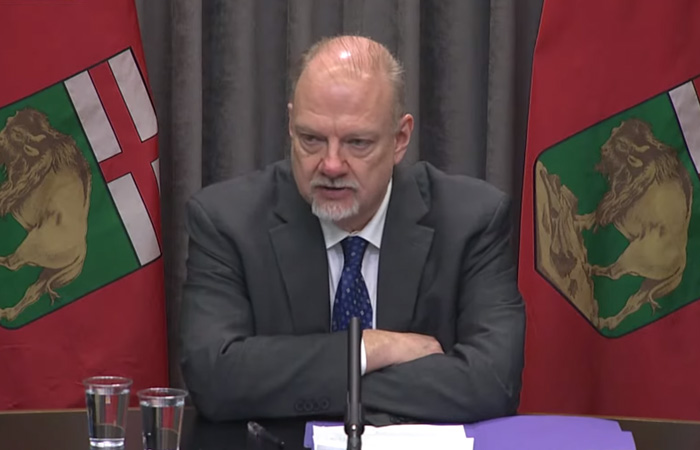Steinbach MLA and Justice Minister Kelvin Goertzen, announced that Provincial and territorial justice ministers, from across the country will meet with the federal justice minister virtually next week, where Manitoba will focus on priority issues including the extension of the Guns and Gangs Violence Action Fund (GGVAF), expansion to the First Nations and Inuit Policing Program (FNIPP) and Legal Aid.
The meeting between federal, territorial and provincial minister’s of justice will be an opportunity to discuss the current situation, challenges, and long-term priorities in each province, as well as an opportunity to raise concerns regarding the invoking of the Emergencies Act by the federal government, noted Goertzen.
“Going after illegal guns and gangs remains a priority for Manitoba and it is key in improving safety in our province,” said Goertzen. “The joint Guns and Gangs Violence Action Fund is an important federal-provincial partnership that we need to see renewed to help keep illegal guns out of the hands of criminals and break up gang activity.”
The five-year federal GGVAF funding agreement, ending in 2022-23, has supported initiatives by the Winnipeg Police Service and Brandon Police Service to disrupt and supress gun and gang crime, and has supported the establishment of the new intelligence database, which will facilitate intelligence sharing and co-ordination between Manitoba’s police agencies.
Goertzen indicated he also intends to advocate for greater federal support for First Nations policing, which has been implemented in some First Nations communities in Manitoba, but which he would like to see expanded to additional communities.
“We have repeatedly heard from First Nations leadership that they would like to see the First Nations policing program expanded. We support that call and will be advocating for greater support from the federal government for First Nations policing to both better serve and better improve the safety on First Nations communities.” said Goertzen.
The FNIPP is a cost-shared responsibility at 52 to 48 split between federal and provincial funding and Manitoba has been underfunded since the beginning of the FNIPP in 1991, the minister noted. Manitoba currently receives just 7.5 per cent of federal funding under the FNIPP nationally, though has the second-largest First Nations population. This funding serves 30 per cent of the First Nations communities in Manitoba, which leaves 70 per cent not served by the FNIPP.
Goertzen noted that Legal Aid will again form a significant part of the discussions with Manitoba seeking an arrangement that better provides access to the justice system for those who cannot afford representation.
“Legal aid is one of the cornerstones of an effective justice system and Manitoba has continued to fund legal aid to ensure its viability, despite limited funding support from Canada,” said Goertzen. “Our government will continue to advocate the federal government increase its share of the legal aid program.”
Manitoba receives federal funding for legal aid expenditures related to criminal, immigration and refugee matters. Since 1972, federal funding came close to covering 50 per cent of its costs. However over the years, Manitoba’s cost increased while federal funding remained the same, noted Goertzen. Under the current agreement, 50 per cent is based on a ‘needs-based formula’ and the remaining 50 per cent is based on historical allocations. Manitoba will advocate for a funding agreement that is solely based on need, which will reflect the demand for service in Manitoba, the minister added.
The meeting between federal-provincial-territorial justice ministers will occur virtually from Feb.22 to 24.





